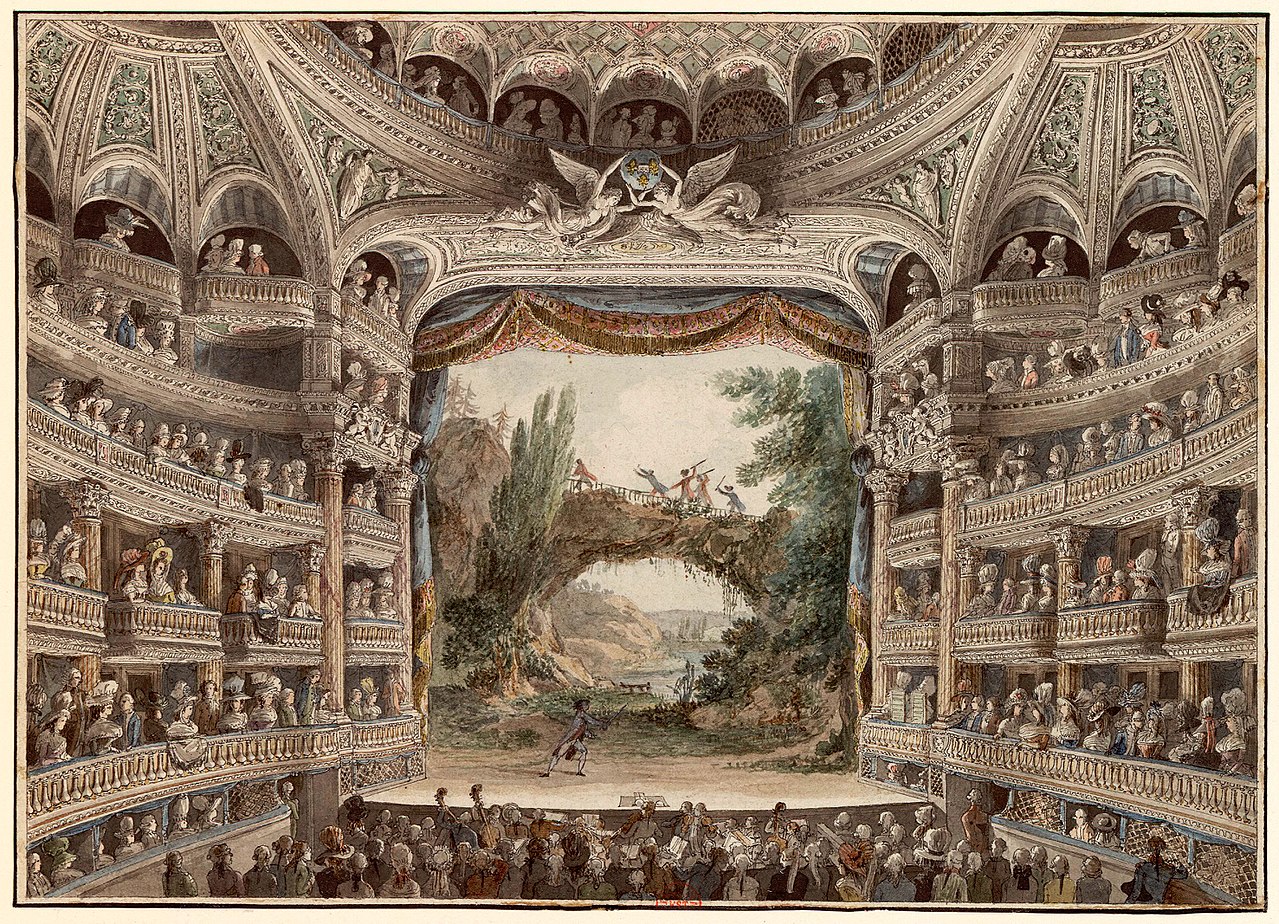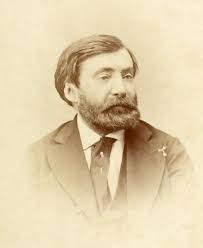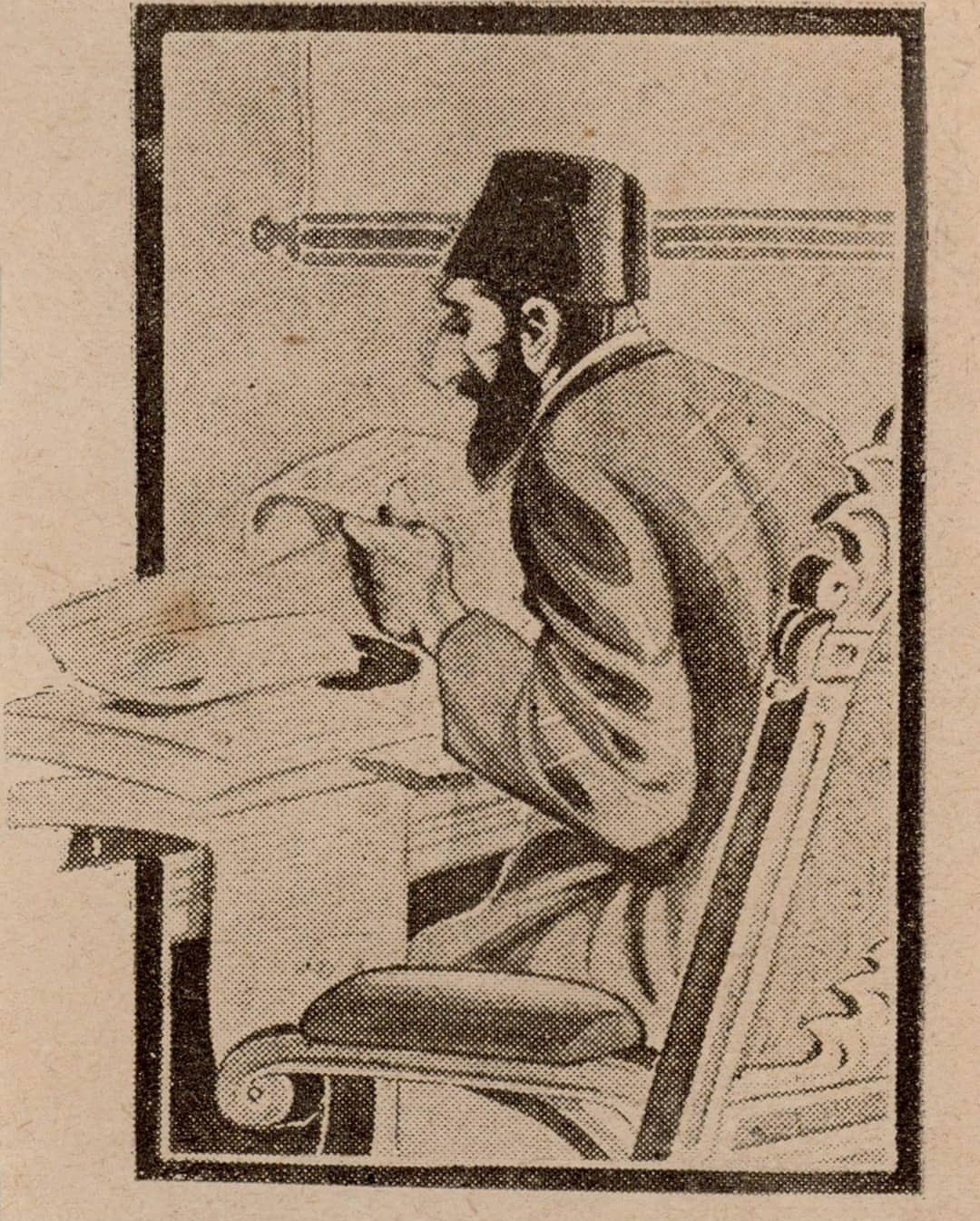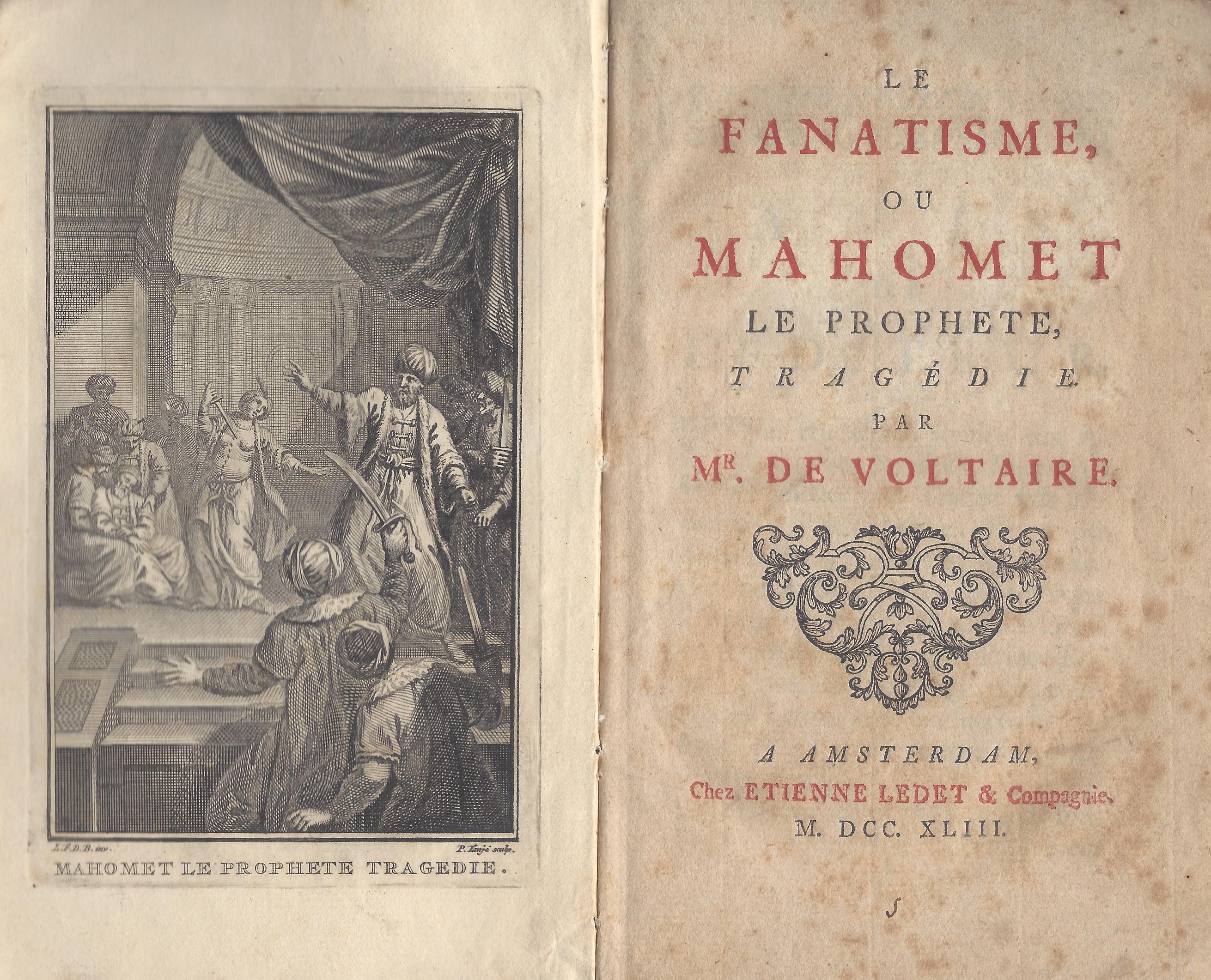
THE PLAYS BANNED BY SULTAN ABDULHAMID IN EUROPE
After the Age of Enlightenment, European intellectuals developed a curiosity to understand the East correctly. As a result, a sympathy emerged towards both Islam and Ottoman aesthetics and culture.
However, due to social and political influences, there have not been lacking fanatics among the public. While it may not be expected for non-believers to show respect for the beliefs of believers, refraining from openly disrespectful behavior towards what people value should be a duty of civilized individuals.
The Ottoman government sought to extinguish this contextual fanaticism out of concern that it would harm itself and the Muslim population. This sensitivity was particularly evident in Sultan Abdulhamid II, who placed the utmost importance on maintaining the prestige of the caliphate.
In Europe, there are documents in the Ottoman archives indicating that plays against Islam or the Ottomans were either removed from the stage or never performed, at the request of the Ottoman government through diplomatic channels. The late journalist Ziyad Ebüzziya had published these records in the past.
Bad Influence!
After reading in a French newspaper that the famous French writer and member of the Académie Française, Marquis Henri de Bornier, was going to stage a play titled "Mahomet" containing inappropriate expressions about the Prophet Muhammad (peace be upon him) and Islam in Paris, the Sultan sent instructions to the Paris embassy.

In this instruction dated 1888, it is stated that "a play script arranged against Islam is understood to be staged at the Comédie Française theater in Paris, and it is clear that such a play, which would have a bad influence on all Muslims, would not be tolerated by the French State." It was requested in a very polite and diplomatic manner to prevent this. Ambassador Esad Pasha in Paris successfully negotiated with French officials to postpone the play for a year.
In March 1890, when Comédie Française reintroduced the play into its repertoire, a diplomatic crisis ensued. The French Foreign Ministry declared that there was no element in the play against Islam and the Prophet Muhammad, assuring that the play would not be performed in Algeria and Tunisia, which were under French rule at that time.
During this period, the Sultan personally met with the French ambassador, Count Montebello, insisting on the removal of the play. Upon the alert of the vigilant ambassador, who warned Prime Minister Freycinet, the performance of the play was banned not only at the Comédie Française but also throughout France by the government. The ambassador informed Foreign Minister Said Pasha about this on March 22, 1890. Correspondence regarding this matter can be found in the Ottoman Archives. (Yıldız Archives, Ministry of Foreign Affairs Correspondence)
.jpg)
Former Diplomats
Following this, de Bornier attempted to stage his play in England, a country known for its greater freedom. He reached an agreement with the Lyceum Theatre in London. At that time, Queen Victoria's Foreign Minister, known for his friendship with Türkiye, was Lord Salisbury. In accordance with the Sultan's request, the government successfully applied to have the play banned in England as well.
Three years later, when Lord Salisbury retired and was replaced by Lord Rosebery, de Bornier, emboldened, attempted to reach another agreement with a different London theatre. However, upon the application of the Ottoman ambassador, it was thwarted by the government. The members of the Ottoman embassy at that time were cultured, experienced, and sensitive diplomats who pursued national interests seriously rather than socializing at cocktails.
News from World
Sultan Abdulhamid II endeavored to stay informed about global affairs by having nearly every newspaper published in Europe brought to him or read to him. His diplomatic efforts against plays deemed unsuitable for staging were not limited to this. However, in none of these endeavors were expressions used to stir up the world or declare war. Furthermore, no attempts were made to harm the playwrights, such as beheading.

Upon receiving information in 1893 that a play titled "Mehmed II" would be staged in Rome, the government, following the instructions of Sultan Abdulhamid II, made a request to the Italian foreign ministry. Assurance was obtained that if there were any derogatory elements about Sultan Mehmed II or Islam in the play, it would be removed.
In 1900, when the play titled "Mahomet and His Heaven" written by William Percy in 1601 was intended to be performed in Paris, the Ottoman government, through the intervention of the Paris embassy, succeeded in having the name of the play changed. Additionally, it was agreed to remove any elements that could be misunderstood as being against Islam.
Poor Voltaire!
The French philosopher and writer Voltaire, who died in 1778, had a play titled "Le Fanatisme Ou Mahomet Le Prophete: Tragedie" (Fanaticism or the Prophet Muhammad: Tragedy). This play, in which almost every sentence contradicts historical truths, depicts the Prophet Muhammad's marriage to Zeyneb in a vulgar manner bordering on slander.

The Prophet Muhammad arranged the marriage of his beloved adopted son Zeyd with Zeyneb, the famous daughter of his paternal aunt known for her beauty and generosity. However, their marriage encountered difficulties, and they decided to separate. The Prophet was deeply saddened by this and felt responsible for their unhappiness. He believed that the only way to console Zeyneb was to marry her himself, but he hesitated due to potential gossip. At this moment, a Quranic verse arrived, confirming the correctness of his idea and stating that their marriage had been decreed in the heavens.
Thus, it was confirmed that an adopted son is not considered a biological son, and that he and his wife are not considered mahram (forbidden in marriage) to the adoptive father. Despite being a very ordinary event, it has been turned into negative propaganda material by European writers and orientalists by constantly being reiterated, with the added slanderous claim that the Prophet involuntarily saw Zeyneb's beauty and fell in love with her. However, the Prophet already knew his cousin's daughter and was aware of her beauty. If he had wanted to marry her, he could have done so at that time. No one has ever questioned how it could be possible for the Prophet to have seen Zeyneb before without falling in love with her, only to suddenly develop feelings for her later on.
Voltaire's play has been staged in theaters since its publication in 1742. Initially, it was heavily criticized and removed from the stage after three performances due to the accusation of touching upon religion by the Catholic Jansenist sect of the time.
In a letter to King Frederick of Prussia, written while the play was still in print, Voltaire confessed that it bore no connection to historical facts. He explained that his intention was to portray the evils of fanaticism, believing that promoting religious tolerance would foster brotherhood. When the fanaticism was understood to be related to Christianity and faced backlash, Voltaire, who had no religious affiliation, dedicated the play to Pope Benedict, a Jansenist opponent, thereby received blessings and saved himself from potential repercussions.
Namiq Kemal argues that due to the blatant errors made by Voltaire in this self-serving endeavor, he made himself a laughingstock. Ahmad Hilmi of Plovdiv, Mahmoud Esad of Sydisheir, Ismail Fenni Ertougroul also criticize him. Ahmad Hikmet Muftioghlu states that the work has no connection to truth and considers it a black mark on Voltaire's reputation, while Jelal Nouri Ileri wonders how someone as forward-thinking as Voltaire could write such a play. Ahmad Midhat and Beshir Fouad claim that the work targets Christianity, not Islam, but they argue that Voltaire used metaphors to reconcile with the church.
Later on, Voltaire changed many of his views regarding Islam. He even praised and admired the Prophet Muhammad. However, the two spiteful plays he had written previously, filled with factual errors, became significant factors in shaping negative perceptions and vulgar attitudes towards Islam and the Prophet in Europe.

It is not accurate to claim that Voltaire's play is the one Sultan Abdulhamid prevented from being staged in Europe. The source of this information is the account of religious scholar and musician Ali Rıza Saghman, who mentioned it by saying, "according to information I obtained from a credible source," without providing a specific reference.
According to him, "This play was intended to be staged during Sultan Abdulhamid's reign. The Paris Ambassador, Münir Pasha, informed the Sultan, who instructed, 'Go to the President of the Republic. Deliver our greetings. Explain that we do not find it appropriate for this play to be performed!' As a result, despite all the tickets being sold, the performance was canceled on the night it was scheduled." At that time, the President of France was Sadi Carnot, who was assassinated in 1894.
The reason for this misinformation was the attempt to introduce another play by Voltaire titled "Mohamet" into Ottoman territories. Its distribution was prohibited by an instructional document dated 1893, sent to the Directorate of Education, as we learn from a document in the Ottoman archives (Ministry of Education Letter Office).
Önceki Yazılar
-
DEATH IS CERTAIN, INHERITANCE IS LAWFUL!25.06.2025
-
THE SECRET OF THE OTTOMAN COAT OF ARMS18.06.2025
-
OMAR KHAYYAM: A POET OF WINE OR THE PRIDE OF SCIENCE?11.06.2025
-
CRYPTO JEWS IN TURKEY4.06.2025
-
A FALSE MESSIAH IN ANATOLIA28.05.2025
-
WAS SHAH ISMAIL A TURK?21.05.2025
-
THE COMMON PASSWORD OF MUSLIMS14.05.2025
-
WERE THE OTTOMANS ILLITERATE?7.05.2025
-
OTTOMAN RULE BENEFITED THE HUNGARIANS30.04.2025
-
An alternative state to Istanbul in Anatolia: THE ANKARA ASSEMBLY23.04.2025